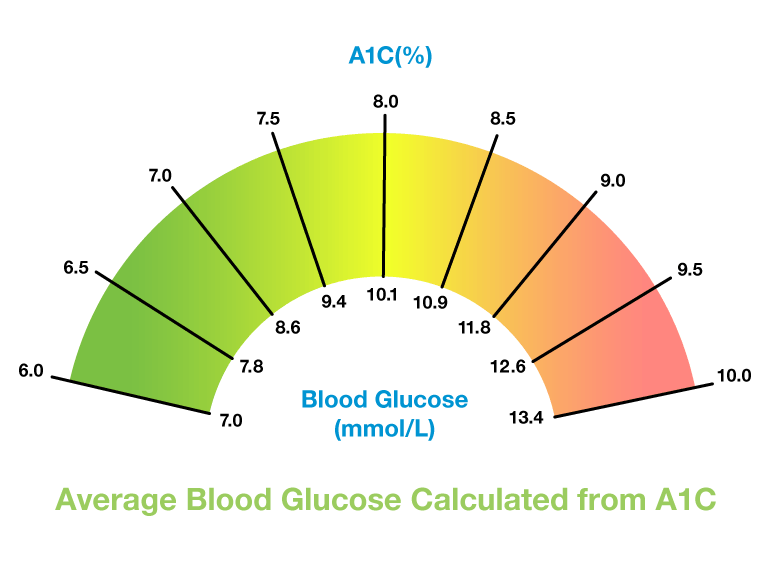
Everything you need to know about diabetes management is in this section. Together with your health care team and information found here you’ll have the tools to maintain your health. You will also find information here about diabetes complications.
Managing type 1 diabetes:
Type 1 diabetes is a life-long condition that requires proper management, including diet, medications, lifestyle choices, doctor visits, and monitoring the disease for complications. As such, managing type 1 diabetes can be challenging to both those who have it and the people who care for them.
Type 1 diabetes is managed with:
- Insulin replacement through lifelong injections or use of an insulin pump
- Regular monitoring of blood glucose levels and a good understanding of the what the values means
- Learning the symptoms of high and low blood sugar and how to manage both
- Following a healthy diet and eating plan
- Engaging in regular physical activity
- Keeping blood glucose levels as close to target range as possible
- Effective communication and follow-ups with your diabetes healthcare team
Managing type 2 diabetes:
The aim of management of type 2 diabetes is to keep blood sugar levels as close to the target range as possible, to prevent both short and long-term complications. While much of the day-to-day work comes from you, your healthcare team (doctor, specialists, dietitian, and pharmacist) are essential in proper management of your diabetes.
Tips to help manage type 2 diabetes include:
- Take your medications as prescribed
- Maintain a healthy and balanced diet, including non-starchy vegetables, fruits, whole-grains, and lean proteins. Avoid unhealthy fats, sugars, processed foods and simple carbohydrates.
- Achieve and maintain a healthy weight
- Engage in exercise daily
- Monitor your blood sugar and/or blood pressure at home, as indicated by your doctor
- Understand the potential complications from diabetes, and how to prevent and manage them
- Gain support from your family, friends, or community/online support groups
Managing blood sugar:
A main priority for people living with diabetes is managing blood sugar. It is important to ensure your blood sugar levels are within target, and to avoid both hypoglycemia and hyperglycemia.
It is important to check your blood sugar level, because it will:
- Determine if you have high or low blood sugar at a given time
- Show you how lifestyle, foods, exercise and medication affect your sugars
- Help you and your healthcare team make lifestyle and medication changes
Managing complications:
It takes work to get your diabetes under control, but it is definitely worth it. If diabetes is left untreated or improperly managed, diabetes can lead to several different complications.
Diabetes can affect nearly every organ in your body, including the:
Diabetes Management Articles
 Raising the bar with T1D standards in CanadaLet’s discuss they key takeaways from the 2025 update: “Glycemic Management Across the Lifespan for People with Type 1 Diabetes.”
Raising the bar with T1D standards in CanadaLet’s discuss they key takeaways from the 2025 update: “Glycemic Management Across the Lifespan for People with Type 1 Diabetes.” 7 morning habits to help manage your diabetesKeeping your blood sugar levels in check beginning in the morning can have a positive impact on the rest of your day.
7 morning habits to help manage your diabetesKeeping your blood sugar levels in check beginning in the morning can have a positive impact on the rest of your day. A1C test – are you keeping track?An A1C (short for ‘glycated hemoglobin’) test is a measure of your blood glucose levels over the past three months.
A1C test – are you keeping track?An A1C (short for ‘glycated hemoglobin’) test is a measure of your blood glucose levels over the past three months. Hypoglycemia symptomsEveryone reacts differently to low blood sugar. That’s why it’s important for you to know your own hypoglycemia symptoms, so that you can recognize a low and treat it quickly.
Hypoglycemia symptomsEveryone reacts differently to low blood sugar. That’s why it’s important for you to know your own hypoglycemia symptoms, so that you can recognize a low and treat it quickly. Diabetes and hearing loss: what’s the connection?Researchers have shown a connection between diabetes and hearing loss.
Diabetes and hearing loss: what’s the connection?Researchers have shown a connection between diabetes and hearing loss. 5 ways to overcome barriers to weight lossPeople with diabetes often face several barriers to weight loss, but with the right support and strategies, these challenges can be identified and overcome.
5 ways to overcome barriers to weight lossPeople with diabetes often face several barriers to weight loss, but with the right support and strategies, these challenges can be identified and overcome. Can weight loss help with erectile dysfunction management in diabetes?Erectile dysfunction (ED) is a common and often distressing complication of living with diabetes, especially for men with type 2 diabetes.
Can weight loss help with erectile dysfunction management in diabetes?Erectile dysfunction (ED) is a common and often distressing complication of living with diabetes, especially for men with type 2 diabetes. Identifying a foot in need: when to seek helpKnowing when to seek help from a healthcare professional is essential knowledge for people living with diabetes, in order to prevent foot complications.
Identifying a foot in need: when to seek helpKnowing when to seek help from a healthcare professional is essential knowledge for people living with diabetes, in order to prevent foot complications. Treating erectile dysfunction (ED) earlyErectile dysfunction (ED) is a common complication for men with diabetes. The good news is that recognizing and treating ED early on can help address symptoms and improve overall vascular health.
Treating erectile dysfunction (ED) earlyErectile dysfunction (ED) is a common complication for men with diabetes. The good news is that recognizing and treating ED early on can help address symptoms and improve overall vascular health. How are diabetes and Parkinson’s disease connected?Living with diabetes is not easy. It puts you at risk for a range of health issues, from eye damage to foot problems and kidney disease. Scientists have learned that having diabetes can also make you more vulnerable to Parkinson’s disease.
How are diabetes and Parkinson’s disease connected?Living with diabetes is not easy. It puts you at risk for a range of health issues, from eye damage to foot problems and kidney disease. Scientists have learned that having diabetes can also make you more vulnerable to Parkinson’s disease.

